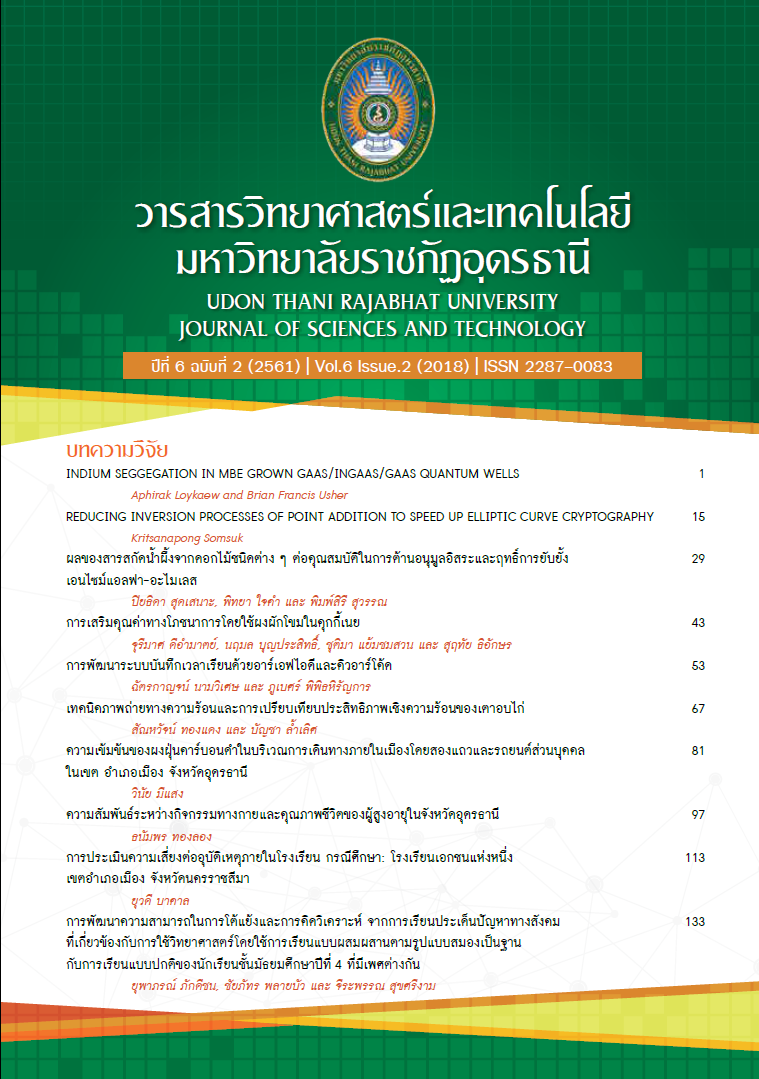DEVELOPMENT OF ARGUMENTATION AND ANALYTICAL THINKING FROM LEARNING SOCIO-SCIENTIFIC ISSUES USING INTEGRATED LEARNING BASED ON THE BRAIN BASED APPROACH WITH MATAYOMSUKSA 4 STUDENTS OF DIFFERENT GENDERS
Main Article Content
Abstract
The study of socio-scientific issues can develop ability of argumentation, analytical thinking, and advanced thinking as well as enhance a sense of responsibility for the democratic society. As such, teachers should use appropriate teaching styles. The purpose of this research was to study and compare the argumentation and critical thinking about socio-scientific issues using a brain based approach supplemented with Integrated learning and traditional Instruction. In the second semester of the 2559 academic year, eighty students from two classes were randomly divided into two groups of 40 students (cluster sampling) as experimental and control groups. The research instruments consisted of (1) a 3-hour lesson plan for a week on socio-scientific issues such as surrogacy, charcoal power generation, organ donations, and growing economic plants as renewable energy (only a posttest was done), each issue was addressed by three lessons, (2) an argumentation ability assessment and analytical thinking ability test. The data were analyzed using a paired t-test, F-test (two-way MANCOVA), and F-test (two-way ANCOVA).
The results of the research were as follows
All students, both male and female students, in both the experimental and control groups showed developments in argumentation from the 1th to the 4th -test. Also, they showed overall gains in analytical thinking in three subscales from the before learning period (P<0.01). The male students showed more argumentation but less analysis of relationships than the female students (P<0.01). The experimental group students showed greater overall analytical thinking than the control group (P<0.05). However, both groups had argumentation ability and analytical thinking that was not statistically different. The interaction of gender and learning method on argumentation and analytical thinking was not found to be significantly different in all three aspects (P>0.05).
In summary, this learning model based on the brain model can be used to develop a student’s argumentation and analytical thinking. Instructors should be encouraged to apply this model to teaching and learning about social issues at other levels.
Article Details
References
ไพฑูรย์ สุขศรีงาม. (2553).เอกสารแนะนำโปรแกรม SPSS: เอกสารประกอบรายวิชา 1601501 Statistic methods for sciences and health sciences. มหาสารคาม: มหาวิทยาลัยมหาสารคาม.
ล้วน สายยศ และ อังคณา สายยศ. (2538). เทคนิคการวิจัยทางการศึกษา. กรุงเทพมหานคร:ศูนย์ส่งเสริมวิชาการ.
วิทยากร เชียงกูล. (2547). เรียนลึกรู้ไวใช้สมองอย่างมีประสิทธิภาพ. กรุงเทพมหานคร: อมรินทร์พริ้นติ้งแอนด์พับลิชชิ่ง.


